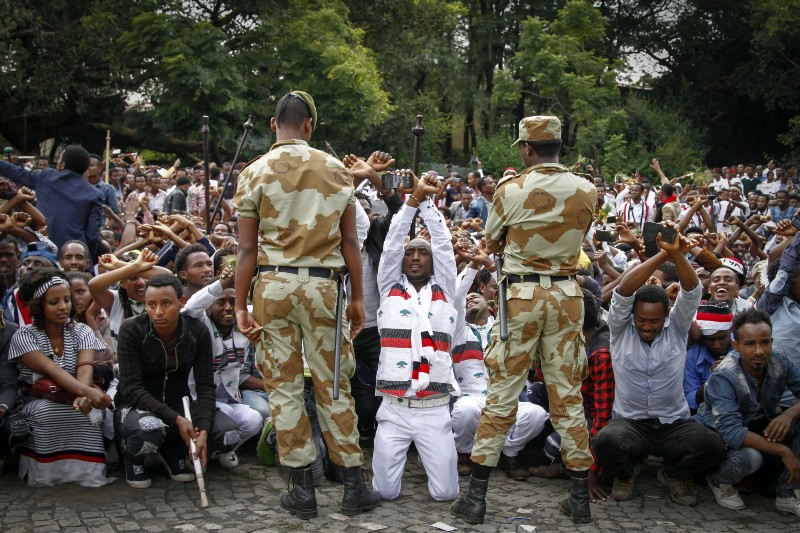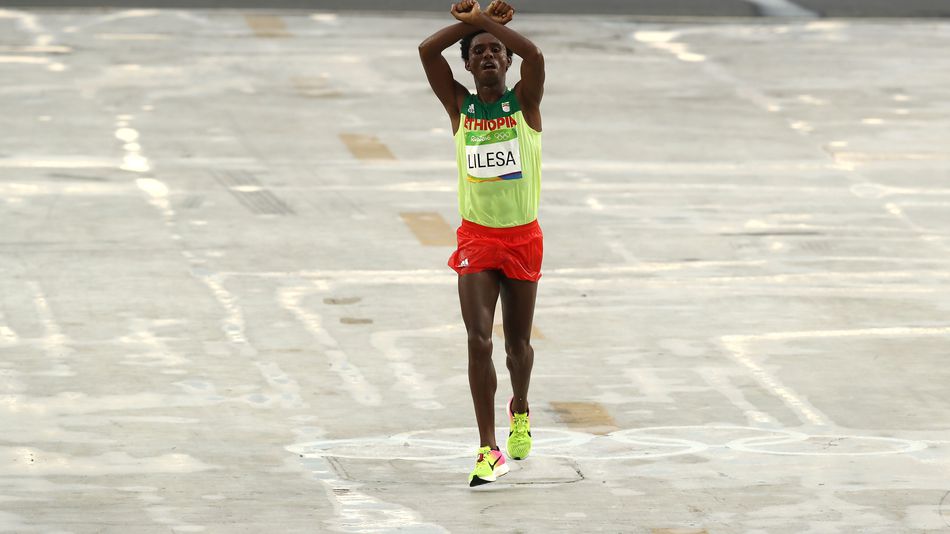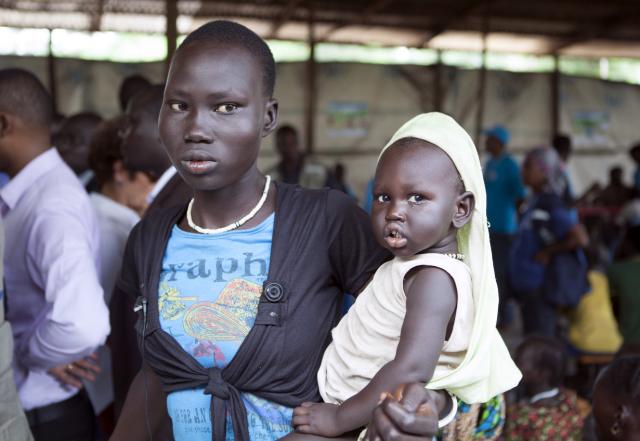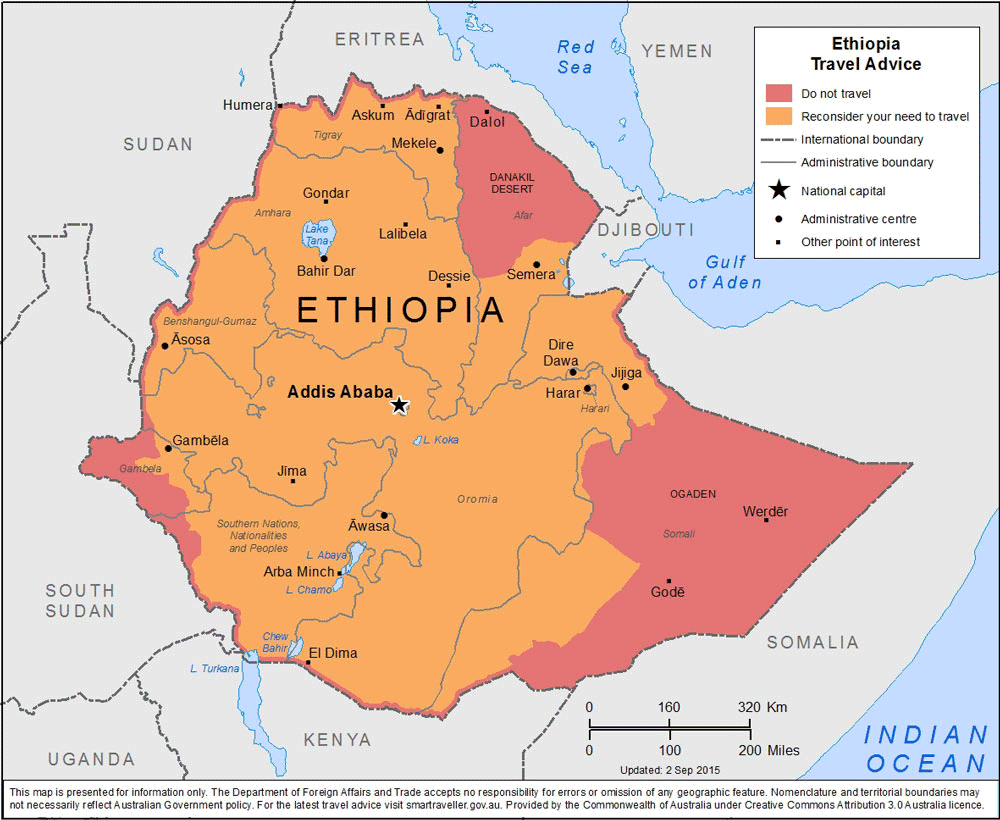
At least 500 protesters have been killed in Ethiopia over the last year.
In a visit to Addis Ababa on Tuesday, German Chancellor Angela Merkel showed her support for Ethiopian protesters — while also offering her nation’s services to help train police and offer mediation to try and quell the rising unrest in Ethiopia.
“A vibrant civil society is part and parcel of a developing country,” Merkel said after visiting Ethiopian Prime Minister Hailemariam Desalegn.
Merkel’s visit came as Ethiopia is reeling from large scale protests and government crackdowns that have left at least 500 people dead in the past year, though some estimates are much higher. Over 50 people died in a stampede last week, after police used teargas and fired warning shots to disperse protesters. On Sunday, the Ethiopian Prime Minister declared a state of emergency for the first time in 25 years, and local media have said that it will last six months.

Protests arose in Ethiopia after the government attempted to expand the capital city Addis Ababa. Elites in the city are confiscating land from farmers and often turning it for a profit. Protesters not only oppose the land grab but also are asking for greater rights and democracy in a country known for extrajudicial execution of political prisoners and widespread political arrests.
When protesters took to the streets, they were violently suppressed by government forces. To show they were peaceful, many marched with their arms crossed, making an ‘X’ sign. This sign rose to prominence when Olympian marathon runner Feyisa Lilesa crossed the finish line in Rio with his arms crossed. Lilesa is Oromo, Ethiopia’s largest ethnic group and one of the groups most affected by the government’s land seizures and crack downs. The Oromo Liberation Front, a banned group fighting for self determination for the Oromo people, organized a number of attacks across the Oromia region last week, VOA reported.
“This is not an attempt by the military to take over,” Ethiopian government spokesman Getachew Reda told reporters on Monday, referring to the state of emergency. Nonetheless, the state of emergency could include curfews in certain areas, arrests, search and seizures without court orders, and restrictions on the right to assembly, as well as banning certain forms of communication, VOA reported. The country’s internet is also largely blacked out.
Ethiopian authorities blamed the unrest on Egypt and said the north African nation was training the OLF to cause problems in Ethiopia over a hydroelectric dam. Egypt is concerned the dam will limit the flow of water from the Nile into the country, though they’ve denied getting involved in Ethiopia’s domestic affairs.
In light of the state of emergency, Ethiopia withdrew forces from Somalia that were fighting al-Shabab. Reports say al-Shabab will likely now retake the town.
The United States, who counts Ethiopia as an ally, has called on the government to show leniency to the protesters and the U.N. asked for access to send independent investigators to gather information in Oromia, according to the AP.
Merkel hopes that her visit will serve to open up the country to more democratic practices. “We are already working in Oromia to de-escalate the situation there by offering mediation between groups,” she said.
Desalegn said he may be open to increased dialogue in Oromia. “We have shortcomings in our fledgling democracy, so we want to go further in opening up the political space and engagement with different groups of the society,” he said.
Ethiopia held parliamentary elections in 2015, but opposition parties failed to win a single seat. The lack of success for the opposition led to accusations of government interference. Ethiopia’s president recently said the government would like to open up the democratic political process to more parties. Ethiopia’s last prime minister, Meles Zenawi, gave the ethnic Tigrayans a more privileged position in Ethiopian society and in the government. Zenawi brought in leaders of other ethnic groups’ political parties, but the deal he cut benefited elites and gave the commoners the short end of the stick.
On the violent suppression of protest, Desalegn said, “The government is not using extreme violence. If it happened, we will investigate the units involved.”
Desalegn blames violent opposition groups, though Human Rights Watch has joined U.N. calls for independent investigations after the opposition said police fired tear gas at protesters causing a stampede.




